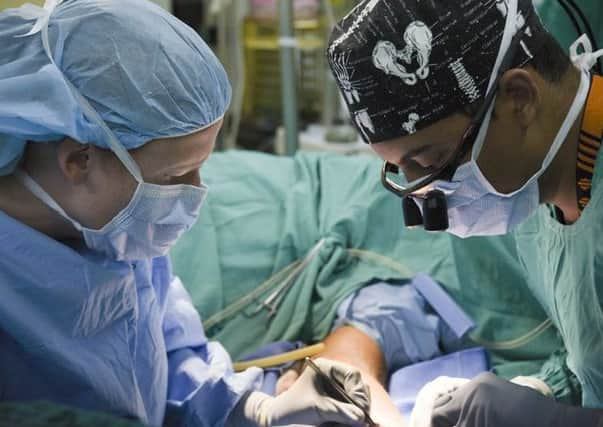Expanding medical student places in NI could cost £30m a year, department reveals


Department of Health Permanent Secretary Richard Pengelly said providing the extra student places could cost £30 million a year – money that would have to come from cuts in other areas of the health service budget.
He also pointed out that such a decision would have to be taken by an elected Stormont minister.
Advertisement
Hide AdAdvertisement
Hide AdThe Department of Health today published the Report of the Review of Medical School Places in Northern Ireland along with the department’s initial response to the 10 main recommendations made in the review.
Led by Professor Keith Gardiner, Chief Executive and Dean of the Northern Ireland Medical and Dental Training Agency, the review was commissioned by the Department of Health to determine the optimum number of medical student places required in Northern Ireland.
Mr Pengelly commented: “I very much welcome this review which provides a sound evidence base indicating the future level of medical education training that should be commissioned in Northern Ireland.
“The 10 main recommendations set out in this report are challenging.
Advertisement
Hide AdAdvertisement
Hide Ad“Medical education already involves significant levels of funding. It is vital to maximise the impact on healthcare in Northern Ireland of the very significant investment already being made in undergraduate medical education.”
He continued: “The expansion in medical student numbers indicated by this report could cost up to an additional £30m per year – funding which would have to be found by making reductions in other areas of the health service.
“This report raises long term, strategic and cross-cutting questions with major financial implications which will require decisions by Ministers. In the meantime, I have today set out the department’s initial view on the 10 recommendations of this report and indicated the actions that we will progress immediately.”
Actions the department will progress include:
• Developing measures to increase the attractiveness of Northern Ireland as a destination of choice for medical training and careers;
Advertisement
Hide AdAdvertisement
Hide Ad• Increasing the supply of Clinical Academics from the field of General Practice;
• Working in conjunction with GP Federations to deliver enhanced levels of teaching and training in Primary Care settings;
• Publicising health and social care career options to young people from the age of 14;
• Promoting medical careers and seeking to increase the proportion of NI domiciles from under-served areas; and
Advertisement
Hide AdAdvertisement
Hide Ad• Developing policy options to link bursary support to a minimum “Return on Service” within the HSC.
Currently, Northern Ireland’s only medical school is at Queen’s University Belfast.
Ulster University’s proposed new graduate medical school at its Magee Campus in Londonderry would provide additional places for student doctors. However, the opening of the new facility has been put on hold due to the ongoing political impasse at Stormont.